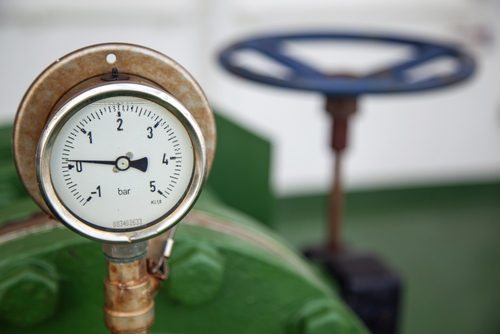
An explosion in Harlem earlier this month that leveled two residential buildings, killed eight people, and left dozens more injured has many focusing on a very real but little thought of problem: gas leaks. The cause of the deadly explosion is believed to have been from a leak found in a gas main near one of the buildings. In New York, aging gas lines and a large reliance on natural gas for the majority of the city’s heat and hot water means that these types of leaks pose a very real threat. However, even in rural areas, leaks are a cause for concern anywhere natural gas is used.
Among the many steps that you take to protect your family and loved ones, understanding how these leaks occur and what signs to watch out for should be considerations. This knowledge will not only let you recognize the warnings of a gas leak but also what to do in the event that one occurs. Here is what you should know:
Signs of a Gas Leak
Gas leaks inside your home are most notable for their “rotten egg” like smell. While natural gas is both colorless and odorless, this smell is added to make leaks noticeable. Other than this scent, be aware of any odd sounds from gas equipment as an indicator of a possible leak.
Gas leaks that occur outdoors are often detectable through visual clues. Dirt blowing up from a hole in the ground, bubbling in wet areas, and discolored or dead vegetation can all be evidence of a potentially deadly problem. Be aware that in outdoor leaks, there will likely be an absence of odor, as it is not typically added in transmission pipelines.
What You Can Do
If you suspect a gas leak, the first thing you should do is leave the area immediately, and get to somewhere safe. Do not attempt to locate the leak yourself, and do not use anything that could potentially cause a spark, as this may ignite the gas. Electrical devices, lighters, and any vehicles parked in the immediate area should not be used until the area has been completely inspected and deemed safe by officials. After vacating the area, call 911 to report your suspicion and ask that it be immediately investigated.
In addition to these, there are other steps that you can take to avoid causing a gas leak. Never attempt to move gas appliances on your own as damage to the connectors may result. Instead, have an appliance repair contractor, HVAC technician, or professional plumber help with the job. Before you dig or excavate on your property, you MUST locate any gas and utility lines. You can do this by calling 811 at least 48 hours before you dig, allowing time for your lines to be marked for safety purposes.
When it comes to protecting your family, we know that there’s nothing more important. You likely take all the necessary precautions such as locking your doors, using smoke detectors, and even installing alarm systems. However, as unfortunate, recent events have shown us, there are other, less obvious concerns that we should be aware of as well. While the frequency of gas leaks may not match that of other hazards such as house fires, the threat they pose is quite real. Keep your loved ones safe from this potentially deadly situation by considering the points above and always being aware of the risks.
At Spencer Calahan Injury Lawyers, we hope that you will always follow necessary safety measures whether in your car, riding your bike, or in your home. Of course, if you ever are in a situation where you are injured through the fault of another, we’ll be here to help. Just click here to request a free case evaluation with one of our attorneys, or call us directly at (225) 387-2323.
